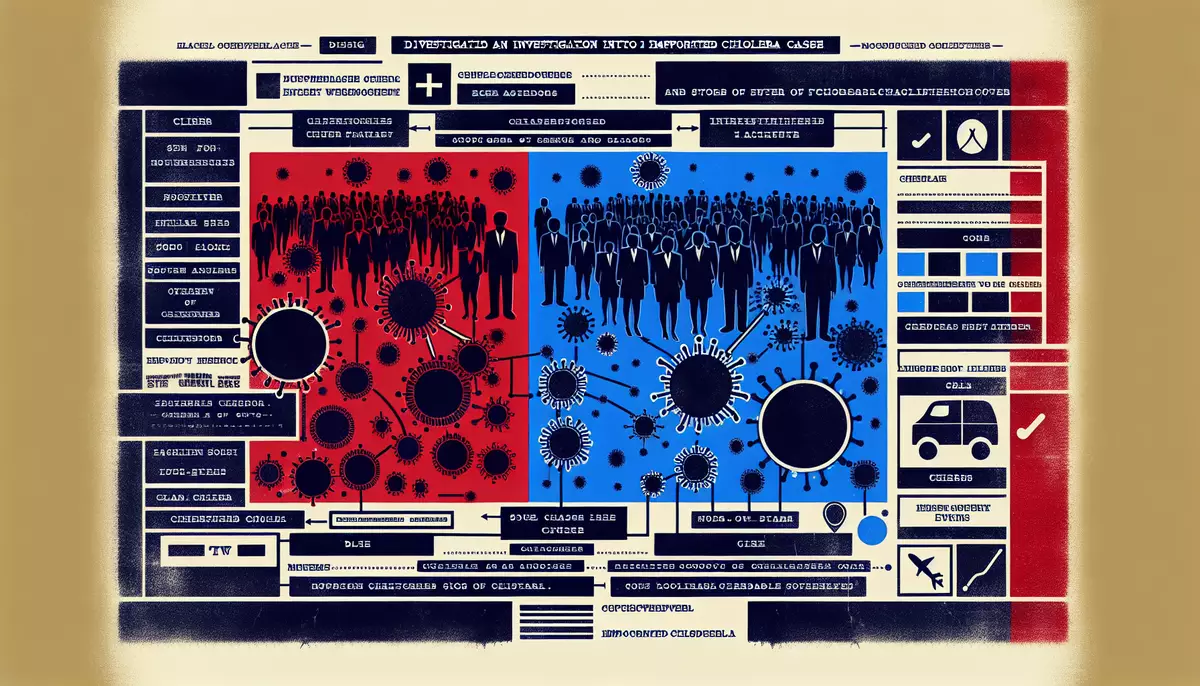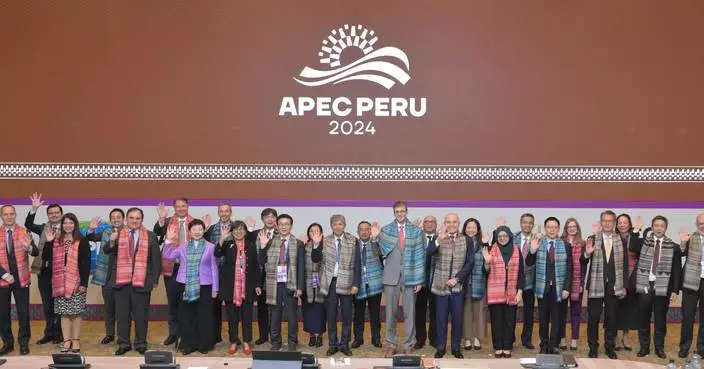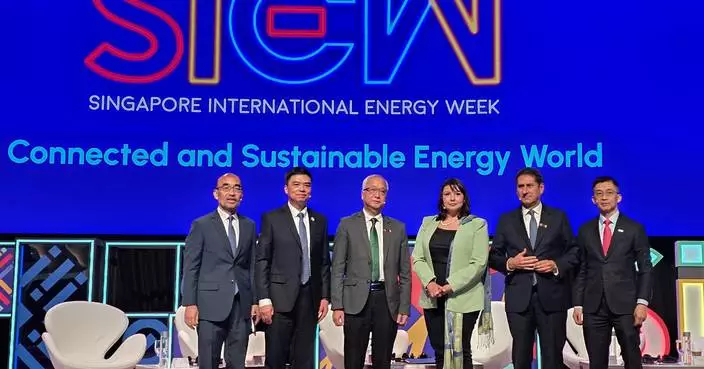Chp investigates imported cholera case: public urged to practice good hygiene locally and during travel to prevent spread of disease
The Centre for Health Protection (CHP) of the Department of Health is today (June 14) investigating an imported case of cholera, and again appealed to the public for good personal, food and environmental hygiene both locally and during travel.
The case involves a 29-year-old male with good past health, who travelled overseas with his family from June 2 to 4 and developed diarrhoea starting from June 5. He sought medical attention at Gleneagles Hong Kong Hospital on June 10 and no admission was required at that time.
His stool specimen today yielded toxigenic Vibrio cholerae O1 serotype Ogawa upon testing by the CHP's Public Health Laboratory Services Branch. The patient was admitted to a private hospital for isolation and management yesterday (June 13). He has been in stable condition.
Initial investigations revealed that his travel collaterals and home contacts are asymptomatic and have been put under medical surveillance. Officers of the CHP have inspected the patient's residence and collected clinical and environmental samples for testing. The Food and Environmental Hygiene Department has also conducted thorough cleaning and disinfection at the relevant residence.
No epidemiological linkages have been found so far between this case and another previously recorded imported case in Hong Kong with a similar travel history. The CHP's investigations are ongoing.
"Most cholera patients have gastrointestinal symptoms such as diarrhoea or vomiting. Some patients with severe symptoms present with a sudden onset of profuse diarrhoea with rice-water-like and fishy smelling stools, nausea and vomiting. Without prompt treatment, these patients may die from severe dehydration," a spokesman for the CHP said.
Cholera is usually contracted through consumption of food or water contaminated with Vibrio cholerae. Human-to-human transmission rarely happens.
The CHP advised the public to observe good personal, food and environmental hygiene both locally and during travel:
In addition, travellers to cholera-affected areas should:
The public may visit the CHP'scholera pagefor more information.

Source: AI-generated images
Remarks by CE at media session before ExCo (with video)
Following are the remarks by the Chief Executive, Mr John Lee, at a media session before the Executive Council meeting today (October 22):
Reporter: Good morning, Mr Lee. A few questions. Last year, you set a total of 150 indicators for specified tasks, and completed all of them but six in your Policy Address, and this year, 138 indicators. How do you see the success rate for last year and how many of them the Government can complete this year? For the second question, as the first phase of disposable plastics ban is now in full force, what can businesses expect to happen in terms of enforcement action, and when the second phase could begin? Thank you.
Chief Executive: I set indicators for the purpose of, first of all, ensuring that the result-oriented culture will be fully established and practised in the Government. This is a new policy, which was introduced when I assumed office in 2022. I am glad to see that, overall, the performance in this area has been satisfying my requirement. Last year, there were six items that did not meet the original target time, but there are reasons which I think I can accept, because the purpose of setting all these indicators is to ensure that we produce the results we want, and also, if there are situations where we can produce even better results, and some time may be taken to ensure that, I think that is a reasonable thing to do. Six out of 150, I think, is a result that is conforming to my requirement.
One more important thing of setting all these indicators is that indicators are means; indicators are not themselves an end. We must see how these indicators will work for us. What is important, other than the number that has been indicated to you, i.e., that over 140 targets have been met satisfactorily, is also to look for other indicators which come out very objectively. These are international indicators, as I have mentioned in my Policy Address. For all these results, the purpose is to check whether the policy directives have been correctly set, because I believe if I set the policy directives in the right direction, then I will reach my goal eventually, which will mean overall good for Hong Kong. I am glad to see that in these almost two and a half years of governance and also the new measures that we have introduced, the position of Hong Kong as an international financial centre has increased one position, so we have come back in the top three as an international financial centre. The measures we have taken are bringing results. Also, in regard to talent, the position of competitiveness has actually increased seven positions, and we have become within the top 10 in regard to talent. Also, for overall competitiveness internationally, we have moved up two positions, and we are the fifth most competitive economy.
We have the indicators I have set in the Policy Address, which I used to check whether the policy directions are set rightly, and also we do produce a result-oriented government. If there are things that we can do even better after the first indicators were set, and we proceed in that direction, then I think it is the result that I want, because, I want to repeat again: indicators are means to ensure that we achieve the end result we want. Internationally, these very objective indicators have shown that the policy directives have been set in the right direction. Thanks to the efforts of the Government and the community as a whole, we have actually produced good results and good success in some very important areas.
Regarding the plastic-free culture we want to build, we have already finished the first phase, which was the six-month adaptation period for the first phase of plastic products to be, first of all, no longer provided and also not offered for sale. I think this six-month adaptation period has gone on smoothly. Generally, I think the culture has been built, but of course, if, after this adaptation period, there are still occasions where the requirements have not been followed, we will take enforcement action. I think it is important to know that changing culture in this area really takes quite some time, so my policy is, while we need to have punishment, I mainly want this behavioural change to be one that will be taken on board by the majority of the people. It is not heavily punitive; rather, it is through allowing people to change behaviour, so that the community has more or less accepted this plastic-free culture.
I am glad to see that there are good results in the catering sector, in the building management sector, and in the hotel sector, which indicated that there has been a lot of disposable cutlery saved as a result of this plastic-free culture we want to build. Also, we will try to help industries or businesses to go through this process, so we will give people a reasonable period to correct. The responsible department, the Environmental Protection Department (EPD), has already indicated we will give 10 days for people to correct if it is discovered during their checks. Of course, if no correction is taken after 10 days, then enforcement action will be taken, and they will be punished in accordance with the law.
As regards the future, I think we want to go on to ensure that this plastic-free culture is more entrenched. We will, first of all, prepare society and the businesses, particularly when we decide as to how we will go to the next stage, i.e., whether there will be sufficient alternative products available in the market for society to move smoothly into the next stage and, more importantly, affordable prices, because what we learned from the first phase is, despite the fact that we all subscribe to this plastic-free culture, it is an important change of behaviour; we also want businesses to be able to go through the process in a smooth manner, and people to be paying an affordable price for all this change of behaviour. These are the serious considerations the EEB (Environment and Ecology Bureau) will bear in mind to design how we proceed further.
(Please also refer to the Chinese portion of the remarks.)






